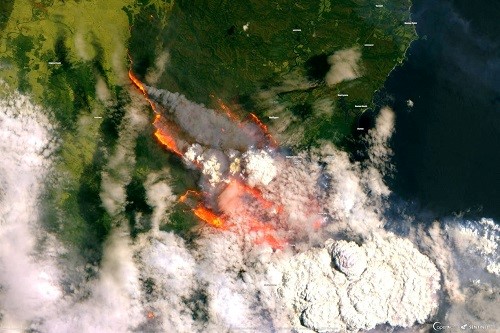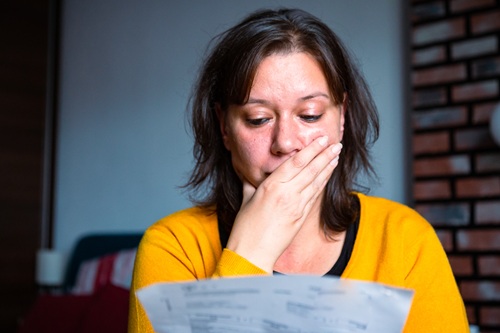We are in a climate crisis; it is the clear and final message we have got now. Under that frightening premise we start a new year and a new decade.
Features
Every little helps
At the time of writing these pages, and as we watch live reports of Australia, the worst bushfire season yet, we cannot but think about similar news of eco disasters in every corner of the planet and even in our daily lives when we realise how warm this very winter has been or how polluted the air we breathe in our cities is.
We now know that despite the growing conscientisation about a more rational use of plastic products and the many initiatives to reduce its consumption, including the forthcoming EU directive that will forbid the use of single-use plastic next year, plastic production increased globally last year, and it’s forecasted to continue to rise during the next decade.
We also know that the amount of waste we recycle has plateaued in the UK during the past four years, while illegal dumping has surged by 50 per cent since 2012, and fly-tipping has increased by 50 per cent in the past six years. A recent report by Unearthed and the Financial Times says that the UK is to miss its reduction of PM2.5 targets set for this year and the decade, being one of the reasons for poor air quality.
 A satellite image of Batemans Bay, Australia, showing smoke and fire from wild bushfires in December 2019
A satellite image of Batemans Bay, Australia, showing smoke and fire from wild bushfires in December 2019
The list is endless; although not all news is as catastrophic. On the positive side, after six years of legal battle, the Netherland supreme court ruled that the Dutch government had explicit duties to protect its citizens’ human rights in the face of climate change and must reduce emissions by at least 25 per cent compared with 1990 levels by the end of 2020.
At home, the UK trend to phase out carbon-generated power continues: in 2019, for the first time, renewable energy beat fossil fuels on 137 days, in the greenest year for UK energy. A Carbon Brief report backs up this rapid gain in decarbonising the power sector, and shows that energy from wind, solar, hydro and biomass projects grew by 9 per cent last year and was the UK’s largest electricity source in March, August, September and December. We can clearly remember reporting on these same pages Britain’s first ever working day without coal power since the Industrial Revolution not long ago. That was on Friday 21 April 2017, less than three years ago.
We all tend to think big and we should, and expect the government, big polluters and other stakeholders to do their part, but as small organisations and as individuals there is a lot we can do without effort or investment.
Working in an office environment with lower levels of energy consumption does not exonerate us from doing our bit. Every day we see the needless printing, the lights, heat and air conditioners unnecessarily on in empty offices, the poor recycling, the lack of planning in corporate transport that see people going individually or by private transport when a simple arrangement would have put them together in the same vehicle and save money to the company.
It is true that sometimes the amount of information about the degradation of the environment, together with the series of small and big initiatives to reduce the human impact on the planet, make it difficult to put data into perspective and draw a clear picture about how slow or fast we are progressing and how little or much governments, businesses and individuals are doing.
That is why during 2020, Safety Management will focus on reporting and analysing how business in the UK are dealing with the environmental challenges we face. We will report on the use of renewables versus carbon- generated energy, we will revisit the eight Millennium Development Goals and the target of ensuring environmental sustainability.
During the coming months we will check on the action taken by the UK and other governments to meet the Paris Climate Change Agreement targets, we will write again about recycling in the UK and we will report the steps organisations and other stakeholders must take towards climate change adaptation, that is the process of adjustment to actual or expected climate and its effects.
We are calling on our readers to let us know the main issues and challenges in their industry, share news and reports and initiatives with us and let us know how their organisations are taking – or not– steps to reduce their environmental impact.
Britain has set the target to create a carbon-neutral economy by cutting emissions to net zero by 2050. We all need to act quickly and responsibly because no organisation or individual can find him or herself alien to climate change effects problems or can claim that it is entirely, somebody else’s.
FEATURES

How to mitigate the hearing loss cost escalation tsunami
By Peter Wilson, Industrial Noise and Vibration Centre (INVC) on 06 February 2026
Employers need to adopt the latest and most effective noise risk evaluation and management measures, or face rapidly-rising compensation claims for noise-induced hearing loss at work.

Young drivers and work-related road risk: why employers must act now
By Simon Turner, Driving for Better Business on 06 February 2026
Young drivers have a higher risk of being involved in road collisions due to factors such as their inexperience, so when employing them to drive for work, it is vital they receive the right support to help them grow into safe professionals behind the wheel.

Financial stress: why and how it affects workplace safety
By Chloe Miller, freelance writer on 06 February 2026
Financial worries can lead to cognitive impairment that increases the risk of workplace accidents, so it’s essential employers provide financial education and confidential support for workers who may be struggling with problems like debt and unexpected living expenses.



